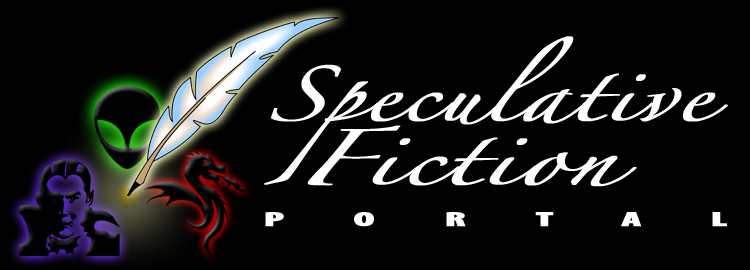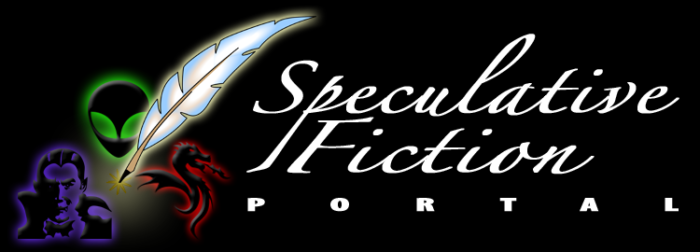Christians And Writing Speculative Fiction
Just this last week I read another report of a writer friend who is considering no longer doing speculative fiction. To be accurate, the word “speculative” wasn’t part of the equation, but since that’s what he writes, that’s a given.
He’s not alone. In a comment to his post, another writer said they were considering the same thing.
In a group of speculative writers, more than one have “sung their swan song,” expressed their frustration at low sales and much work, and have decided to hang it up.
This is not exactly new. I know of a speculative writer who wrote in obscurity for years. Eventually he got a contract with a traditional publisher who put out his fantasy trilogy and received . . . dismal sales. So he decided, enough.
Then there’s the middle grade writer who had a similar experience. Not the “writing in obscurity” part exactly. He’d written nonfiction and work for hire for years. In other words he’d paid his writing dues, honed his skill, then when the opportunity came, . . . sales were not there.
Some of these writers I’m talking about primarily are self-published. Some have been contracted by a traditional press.
 At the other end of the spectrum are writers who self-publish and do quite well or writers who started out with contracts from small presses and now have contracts with major traditional publishers. Yes, these too are speculative writers.
At the other end of the spectrum are writers who self-publish and do quite well or writers who started out with contracts from small presses and now have contracts with major traditional publishers. Yes, these too are speculative writers.
What are we to conclude from these circumstances?
1) Some people have no clue how to market and no will to do so. Apparently they have no desire to learn, either, or to bring someone on board who can help with that end of the writing and publishing experience.
2) Some people are publishing prematurely. They, much as I did when I was new to writing fiction, think they’re ready when they aren’t ready. They apparently haven’t put their work in front of anyone who will give them knowledgeable feedback. Are there plot holes? Are these characters realistic? Is there tension, clarity, conflict, resolution? And on and on. Too many “beta readers” make their evaluation based on the fact that they like this person and they want them to be happy, so they give a story a thumbs up when it really needs much more work.
I see what I can only assume to be novels that have received this kind of approval which then end up in contests. They hold no chance against the novels from authors who have learned the craft, received the critiquing, editing, proofing from an established team of professionals.
But remember, good writing doesn’t mean good promotion.
 3) Some people write what they like and are unaware what the majority of readers want. I kind of think that’s the case when it comes to “Christian horror.” Yes, I do know some people are firmly in the corner of this genre. They believe in it. But from what I’ve seen, readers who embrace horror aren’t particularly interested in a “Christian” aspect, and Christians aren’t particularly eager to read the horror aspect.
3) Some people write what they like and are unaware what the majority of readers want. I kind of think that’s the case when it comes to “Christian horror.” Yes, I do know some people are firmly in the corner of this genre. They believe in it. But from what I’ve seen, readers who embrace horror aren’t particularly interested in a “Christian” aspect, and Christians aren’t particularly eager to read the horror aspect.
Of course there is the factor that many in Christian leadership still do not understand the pretend element of speculative fiction. Just this week I heard a pastor mention dark elements such as vampires as a thing to avoid. Are they wrong? Not categorically, but neither are they right. There is perhaps more evil displayed in “realistic fiction” that never gets thrown into the classification of “dark.” Yet it belongs there more than any pretend monster story.
There is one more issue connected with writing Christian fiction—some writers believe speculative fiction needs to tell the truth about God and spiritual forces. I’ve read some books that do a remarkable job showing demons and angels in the same way the Bible does, for instance. On the other hand I’ve read books that have humans traveling to hell and back, demon hunters battling evil by means that can only be referred to as superstition, angels getting trapped on earth and unable to return to heaven.
The question is, if someone is writing Christian fiction, what do Christians want to read? My guess is, they’d choose to read books that do not distort or twist facts about the supernatural that God has shown us.
But what about Christians writing fiction that isn’t telling any spiritual truth? Their stories are just intended to be good stories.
Yes, I’ve heard over and over that their Christian worldview will inevitably leak into their story, but is that attractive or off-putting to the general market? I know of one writer who wanted to make a difference among young adult readers by creating a “clean” story. Yet in the end, their characters entered into relationships that were no different from someone writing from a different worldview. Apparently that’s what the story demanded, and holding on to a “puritanical” approach would have been off-putting to the general market readership.
Will writers who hold to Christian values in their stories also hold their readers? Or find their readers? Must they write to Christians only?
I happen to think that the world desperately needs to hear what Christians have to say. The world needs hope and healing from sin, but the truth is there is only false hope in “looking for the power within,” or the “man is good, you just need to show him empathy” approach to life.
So where does that leave Christians and speculative fiction? I guess the key is to take a hard look at the books that are “making it,” the books in the general market and in the Christian market and those that are self-published and selling well. What do they have that the others do not?
I’d be interested in your ideas. Do you know any books that are doing well—selling in the thousands—whether self-published, traditionally published (by small or large, Christian or general market, publishers)? What do they do that allows readers to find them and want to read them?










































Rebecca, as someone who has experienced a lot of darkness and pain most popular Christian fiction rings hollow for me. My life is more like something Shirley Jackson wrote than Janette Oke. The fact that most Christian readers see Prairie/Amish romances as true to life makes me think they have cushy lives.
I like Flannery O’Connor. But everyone I talk to says she can’t be a Christian because her stories aren’t Nice. Sigh.
I may just write for non-believers. They have problems and admit that bad things happen.
I do agree that most of the popular Christian fiction is unrealistic with how life really is. I have found some authors though that I really like that portray characters and stories with struggles and truth. Jaye L. Knight is great with showing both the highs and lows of life in her fantasy series. She doesn’t sugarcoat the ugly, but she doesn’t forget the happy moments either.
In my opinion I’ve had a pretty decent life, all things considering. But I have dealt with some hard things, and simply from what I’ve observed of human behavior, I agree that a lot of the popular Christian fiction rings hollow sometimes. Same with some of the secular stuff, too.
Not every story has to be dark and stuff, but it’d be nice if people would speak to real life experiences more. Quite a few of my stories are Christian fiction, but the lives of many of my chars are extremely harrowing simply because that’s what makes sense for their circumstances and it’s often better that the audience has characters that can illustrate/help them deal with their struggles.
Christian culture has a reputation of prioritizing appearances over reality and yeah, I have experienced that.
I think a big step forward would just be admitting that things don’t always follow the Approved Cultural Trajectory. Or that things might be better if it DIDN’T.
Interesting perspective, Rachel. I work in our church library, and one day I asked a women who was checking out a prairie romance why she liked those books. Her answer: because I have to spend so much time in the problems all around me, I don’t want to read more of that. In other words, I know there is one person at least who doesn’t read Christian romance because her life is easy.
Becky
I think we need to keep trying. I think that marketing to already-existing groups is doomed to failure in some ways. I think we need to take the lead and persuade others that they SHOULD be giving our books a chance and etch out a market rather than go find a market that already exists.
God knows the future and I don’t, but I don’t see me ever giving up on writing speculative fiction that is mostly eschewed by people who share my religious convictions and mostly looked at with suspicion by people interested in the type of fiction I like.
(God willing, I’m gonna be like the Lord in Monty Python, who built a castle in a swamp, which sank, so he built another and another and another until he finally got one to stand. 🙂 )
There is a big market for good, epic Christian fiction, I think, it’s just that the current stories being published don’t cater to that market, therefore we don’t hear from that market much.
Some of the best authors are probably ones that would love to write regardless of whether they made money off it. Maybe they don’t publish things they can’t make money off of, but they still write even if it’s just for their own sake and are constantly trying to hone their craft.
Simply writing the types of books we’d like to read will probably help, though. If we keep trying to write good quality Christian fiction that addresses the difficulties of life, takes place in a cool story world, etc. then we should eventually be able to appeal to people with the same tastes.
There are small niche markets out there that like things like Christian horror and other such things, and sometimes catering to niche markets can be an excellent publishing strategy. But people don’t always know how to do that well, so when trying to appeal to niche markets it’s best to do a lot of research.
Christian elements don’t have to be off putting when placed in a story, but they seem off putting because of the way people tend to write those elements. Making sure they are a very natural part of the story world and characters can go leaps and bounds as far as whether or not the story is preachy.
Another thing is to let the characters struggle and wonder. If they’re usually super sure of themselves the entire story and rarely experience character growth, that comes dangerously close to sounding like the author is trying to say ‘This character is the model Christian and his opinions are the rule book for life’.
That’s a thing, too, I’ve noticed, that a lot of Christian authors feel like they have to write Role Models rather than characters. They’re about as engaging as wet cardboard, tho.
Yeah. Role model chars can be ok sometimes, but they have to be well written. Flawed, too. To me the best role models are ones that learn from their mistakes and therefore show people how to learn from mistakes. Some Christian fiction authors seem to be afraid to write that as much as they should.
Another thing I’ve noticed is that a character can be a good role model for some traits, but not others. Several chars I write can probably be good role models for traits like adaptability, resilience, problem solving, etc. But some of their other traits are ones that people can’t and shouldn’t copy now days because our world is so much different than theirs.
Some of my chars are much more violent because that’s what their world and situation calls for, for instance, but that isn’t something a modern person should copy. That kind of mirrors real life in the sense that we can learn good things from almost anyone, but there’s a point where we have to realize we can’t copy everything they do.
So no books that are making it which we can look at? That’s disturbing!